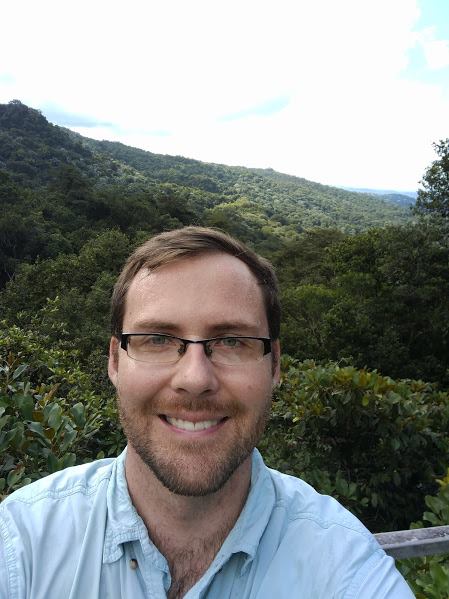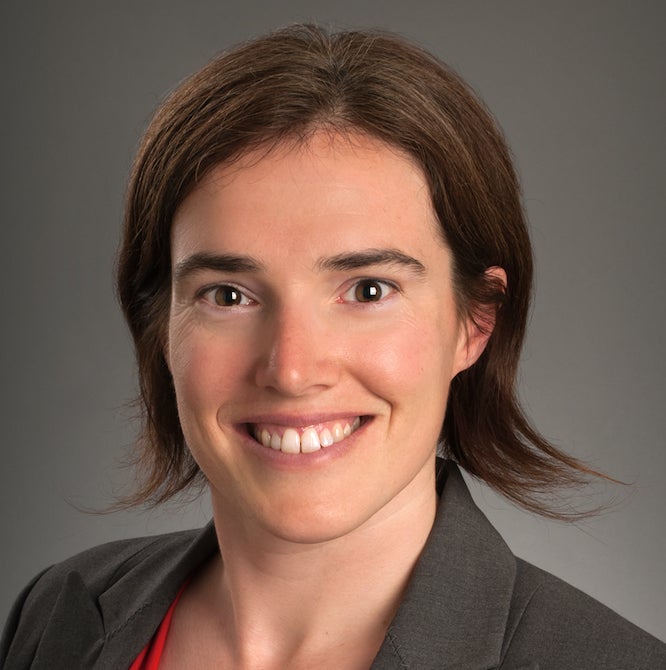-By the Graduate College
The Graduate College at Boise State is committed to providing graduate students with a rich and meaningful graduate experience by ensuring student success, fostering communication, and enhancing the academic experience of students. Central to achieving these goals is the strong mentorship provided by faculty to their graduate students.
To encourage and promote a culture of mentoring at Boise State University, each year the Graduate College recognizes four faculty with awards for excellence in graduate mentoring: two winners and two honorable mentions. The recipients of this year’s Graduate College Excellence in Graduate Mentoring Awards are Trevor Caughlin, assistant professor of biology, and Clare Fitzpatrick, assistant professor in mechanical and biomedical engineering.
The awards are designed to celebrate the efforts of faculty who consistently serve as effective mentors. Faculty mentors can be nominated by faculty, administrators, or graduate students, and the nominations are reviewed by an interdisciplinary selection committee, consisting of graduate students, faculty, and administrators. In reviewing the nominations, the committee focuses on evidence of strong mentorship in the three core areas of academic, professional, and personal life. This year, the graduate college received 14 nominations, all of which demonstrated the outstanding mentorship taking place at Boise State University.

Caughlin was nominated by current and past graduate students, as well as by his faculty colleagues.
Students and faculty comment on Caughlin’s interdisciplinary, collaborative, and inclusive mentoring style stating, “Over the last four years, Trevor’s mentorship umbrella has expanded from two students to include dozens of graduate and undergraduate students from five Boise State departments.” The nomination also noted his ability to teach cutting-edge research and communicate difficult ecological, statistical, and geospatial concepts to students of all levels: “The most remarkable aspect of Trevor’s quantitative ecology teaching is that he approaches it with seemingly zero ego or arrogance. Trevor is reliably the first person in the room to say “this stuff is hard, don’t worry if you don’t get it right the first time.” This non-judgmental approach to teaching has directly led to the success of many students in the program. Finally, he supports his mentee’s mental health and wellness by communicating about strategies to cope with stress and anxiety, and by demonstrating that successful scientists take time to care for themselves and others. For example, one student writes, “Trevor creates spaces where people do not just feel included but also practice inclusion, empathy, and understanding.” All of these characteristics make Caughlin a prime example of an Excellent Graduate Faculty Mentor.

Fitzpatrick was nominated for the award by her graduate students and received further support from her colleagues. Fitzpatrick’s students comment on her unwavering support for them as they pursue their research projects and hone their professional skills stating, “without the mentorship that Clare has provided…, I would not feel qualified to be considered a researcher or confident that my future aspirations could be attained.” She effectively supports her students in pursuing interdisciplinary research by creating a mentoring constellation for them, which consists of multiple mentors each providing their unique support to create a fuller mentoring experience in concert. Fitzpatrick has also helped several of her students attain financial stability by helping them pursue and receive highly competitive fellowships, such as the National Science Foundation Graduate Research Fellowship. Finally, Fitzpatrick creates an academic community that is welcoming to, and inclusive of all students, and instrumental in producing productive and successful mentees: “She taught me that science knows no borders,” and “Clare Fitzpatrick has thus far, and quite obviously, been the keystone in each of the many thresholds I have crossed on my path towards a future career as a researcher.” Clare embodies an honorable faculty mentor, as she makes a meaningful contribution to the graduate education at Boise State University in general, and her mentees specifically.
The recipients of this year’s honorable mentions are John Bieter and Julianne Wenner. John Bieter is the director of University Foundations program and a Professor in the Department of History. The students and faculty who nominated Bieter commented on the incredible amount of time Bieter devotes to help guide his graduate students in their academic and professional pursuits and highlighted his genuine care for his students’ wellbeing during their graduate programs. Julianne Wenner, associate professor in the Department of Curriculum, Instruction and Foundational Studies was honored for the admirable level of support she provides as her students progress academically towards their careers. She provides opportunities that help her students to grow as teachers and leaders across Idaho schools and beyond. Fitzpatrick is also considered a great role model, who helps students believe in themselves and in their position within the academic community, even in times of uncertainty and vulnerability.